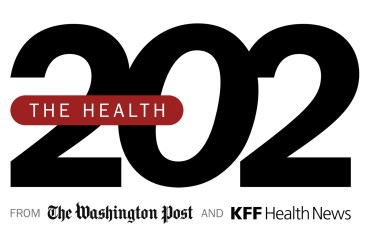Colorado’s leaders had grand plans to import cheaper medicines from Canada, after the Trump administration issued rules in 2020 allowing states to try it.
But officials in Denver say they’ve been stymied by opposition from drugmakers — as well as the Biden administration’s inaction on the policy. That’s according to a Dec. 1 report we obtained that was prepared for the state legislature by the Colorado agency working on the importation plan.

The Health 202 is a coproduction of The Washington Post and KFF Health News.
Subscribe NowColorado filed an application with the Food and Drug Administration in December 2022 to set up an importation program, becoming among the first states to try to take advantage of the Trump rule. But federal regulators under Biden have yet to green light it.
- “Generally, the challenges that remain are outside state authority and rely on action by FDA and/or drug manufacturers,” the Colorado Department of Health Care Policy & Financing report reads.
The report says Colorado officials reached out to 23 drug companies in the past year; they either declined to discuss the program, said they would not participate or did not respond at all.
Lawmakers in both parties have sought for decades to legalize importation of drugs from Canada. Florida has been waiting nearly three years for a decision from the Biden administration on its importation plan, pushed by Gov. Ron DeSantis, now a GOP presidential candidate.
U.S. consumers pay some of the highest prices in the world for brand-name pharmaceuticals. Drugs are generally less expensive in Canada, where the government controls prices.
Under President Donald Trump, the federal government declared that importing drugs from Canada could be done safely — satisfying for the first time a condition spelled out in a 2003 law. The Trump administration finalized its importation rules in September 2020 just as voters were about to head to the polls.
But Colorado officials say there was at least one more catch: The rule didn’t take into account that states would have to negotiate directly with drug manufacturers, which oppose selling their brand-name drugs in the United States at Canada’s significantly lower prices.
“As the federal Final Rule did not contemplate the need for this negotiation step, we have urged FDA to release further guidance regarding how states can operationalize the program with this in mind, but to date, no guidance has been released,” the Colorado report said.
Biden reversed a lot of what Trump did on health care — but not the importation rule. However, his administration hasn’t shown much support for the idea. Health and Human Services Secretary Xavier Becerra told KFF Health News last December that he wouldn’t commit to the FDA ruling on any state application in 2023.
The president has repeatedly suggested that under his watch, Americans would be able to import drugs from Canada.
During his 2020 campaign, Biden said he’d allow it if the government certified the drugs as safe. In 2021, he ordered the FDA to work with states to import prescription drugs from Canada. In a 2022 speech about how he was going to reduce drug prices, he cited Colorado estimates of how much people in the state could save through importation.
FDA officials responded to Colorado’s importation application in March 2023 by asking for more information, including a smaller list of drugs to target to prove that importation can save money. Colorado’s initial application included 112 high-cost drugs. The state estimates that it could save residents and employers an average of 65 percent on the costs of those medicines, including drugs for diabetes, asthma and cancer.
Colorado said it plans to submit an updated application in early 2024. By then, it’s possible the FDA will have ruled on Florida’s application.
The drug industry, wary that a government-organized importation program could eat into its profits, opposes the idea and has argued that importation would circumvent U.S. safety controls.
“They will do anything to protect their golden goose that is United States’ consumers and patients who pay the largest amount for drugs in the world,” said Colorado state Sen. Sonya Jaquez Lewis (D), a pharmacist and a leading advocate for drug importation.
The White House and Congress, she said, should force drugmakers to negotiate with states to start importation programs.
This article is not available for syndication due to republishing restrictions. If you have questions about the availability of this or other content for republication, please contact NewsWeb@kff.org.
KFF Health News is a national newsroom that produces in-depth journalism about health issues and is one of the core operating programs at KFF—an independent source of health policy research, polling, and journalism. Learn more about KFF.
USE OUR CONTENT
This story can be republished for free (details).
from KFF Health News https://ift.tt/QapX3oM
 Rose
Rose
0 comments:
Post a Comment